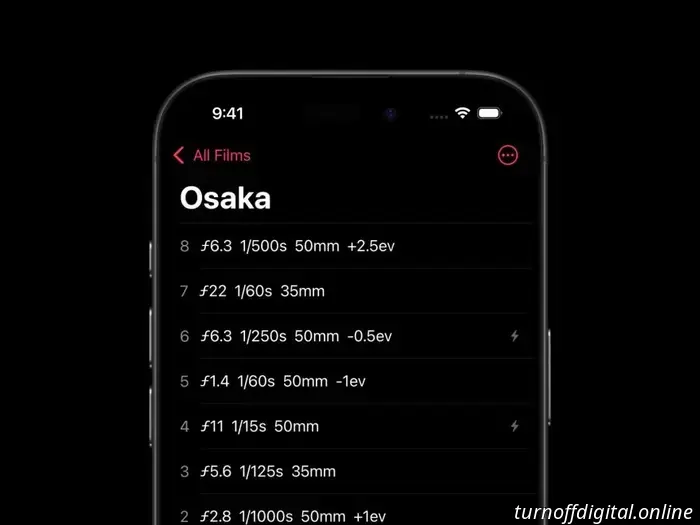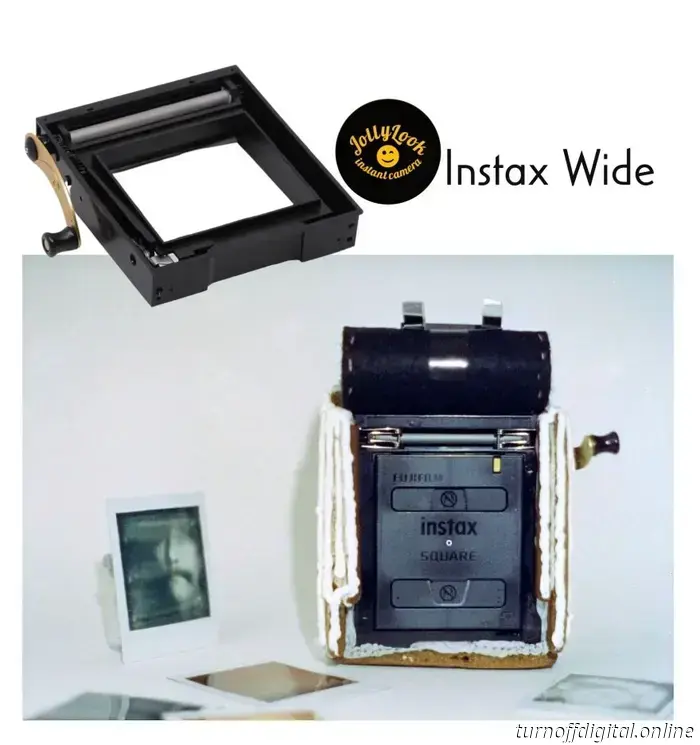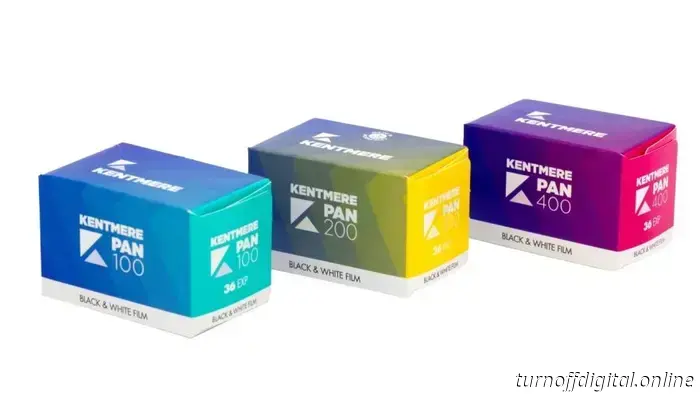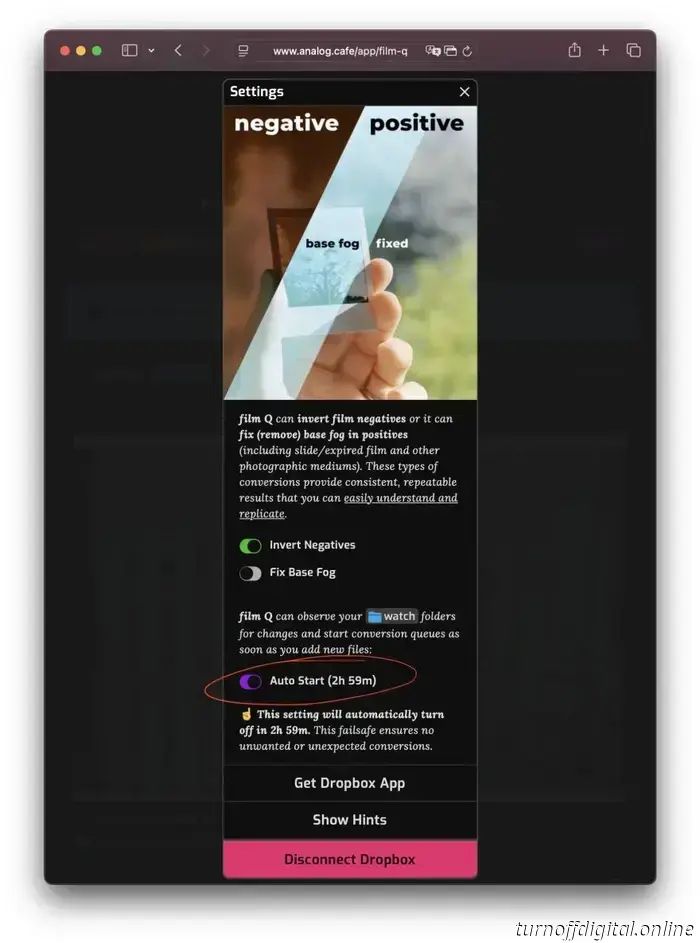
Locating the film you desire in Bangkok can be quite difficult, and if you're looking to have your transparencies or negatives scanned using equipment superior to a Noritsu or Fuji Frontier, many will claim it’s not feasible. (Luckily, they're mistaken!) This article discusses a variety of services: film labs for E-6, ECN-2, B&W, and C41 processing, along with options for purchasing film and having it scanned.

Frames is a solo endeavor inspired by a love for film photography and careful record-keeping. The applications are offered for free (with optional paid upgrades available), free from advertisements, and prioritize your privacy.

Jollylook is a Ukrainian manufacturer of cameras recognized for their instant film cameras primarily crafted from wood and paper. The company also attracts a community of DIY enthusiasts who appreciate Jollylook’s self-assembly camera kits and film development units that can be customized for any camera. #editorial.

Ilford has introduced a new economical ISO 200 black-and-white film called Kentmere PAN 200. This marks their first addition to the monochrome film lineup in quite some time.

Film Q was launched in beta just over a month ago and has already inverted over 10,000 film negatives. We appreciate everyone who has tried Film Q and provided feedback so far! #editorial.

I possess a limited hand-rolled edition of Kodak Vision 3 film, featuring the new signature dark Cinema Shorts design, packaged in sets of three along with a signed, revised development guide. As a new or existing Analog.Cafe GOLD member, you will have the opportunity to win one of these boxes each month until September 2025!

I initially discovered that Pentax was developing a new film camera in 2022: https://www.analog.cafe/r/film-photography-2022-year-in-review-jtlm#pentax-is-working-on-a-new-film-camera-series. However, it seems the company likely started this initiative well before that, beginning with the recruitment of engineers who had experience with film cameras such as the K1000 (https://www.analog.cafe/r/asahi-pentax-k1000-film-camera-review-r96o). #editorial.

While it was originally intended for filmmaking, this film has gained significant popularity among still photographers due to its tungsten-balanced color palette, fine grain, high ISO, wide dynamic range, and excellent response to cross-processing. In this review, I will explore all the technical characteristics and creative potential of Kodak Vision 3 500T, compare it with CineStill 800T, and discuss Kodak's recent restrictions on the sale of this film to individual photographers.

Bali features several film labs, each providing a diverse range of services. Below is a brief overview of the options, locations, pricing, and observations regarding the labs we experienced.

The Polaroid Flip instant film camera has been launched, Fujifilm reveals price increases, I speak with Sissi Lu regarding her DO NOT X-RAY pouch, Bad Film Simulator and cannabis-infused film developers are available, a new article series focuses on redscaling, bluescaling, and greenscaling color film, a spring photo collection, and updates to Analog.Cafe’s negative inversion tool — film Q. Additionally, ORWO might be introducing several new films this year.

Casey Chong examines eight notable cult sci-fi films from 1985... The year 1985 was significant for the iconic sci-fi film Back to the Future, which grossed over $210 million in the U.S. alone. Directed by Robert Zemeckis, this time-travel classic remains a beloved cinematic landmark. Alongside it, several other sci-fi movies were released, some achieving success like Cocoon, while others, such as Enemy Mine and Explorers, were largely overlooked by audiences at the time. Below, we present our selections of the essential sci-fi films from 1985 beyond Back to the Future... Re-Animator Not for the faint of heart, Stuart Gordon fully embraces Lovecraftian horror with sci-fi elements in Re-Animator. The film features Jeffrey Combs in his memorable and eccentric role as Herbert West, a deranged medical student obsessed with resurrecting the dead using his experimental serum. Gordon’s direction captures the essence of a B-movie spirit, merging sci-fi horror with dark comedy. The film is exceptionally bloody and gory, showcasing impressive practical effects and maintaining a brisk pace without unnecessary distractions. The cult success of Re-Animator led to two sequels, Bride of Re-Animator and Beyond Re-Animator. Brazil Terry Gilliam’s often-misunderstood sci-fi masterpiece failed to draw large audiences upon its release but has since been recognized as a classic. Gilliam, who co-wrote the screenplay, presents a unique vision of a dystopian future rife with bureaucratic absurdities, focused on a low-level government employee, played by the empathetic Jonathan Pryce, as he navigates a landscape of daydreams and mundane reality. Beyond Gilliam’s stunning visuals and quirky humor, the film offers profound narrative depth, drawing on Orwellian themes of totalitarianism and oppression. Although its nearly 2 ½ hour runtime might deter some viewers, Gilliam’s intricate direction offers a distinctive cinematic experience worth witnessing. Enemy Mine Wolfgang Petersen, known for genre-defining works like Das Boot and Air Force One, directed the sadly underrated Enemy Mine, which came a year after the success of The NeverEnding Story. The film faced numerous behind-the-scenes challenges, including the firing of original director Richard Loncraine, who had already filmed some scenes. Rather than using Loncraine's footage, Petersen opted to start anew. Unfortunately, despite his efforts, Enemy Mine struggled at the box office, yet it deserves recognition for its effective exploration of themes such as harmony, unity, and empathy, adapted from Barry B. Longyear’s novella by Edward Khmara. Primarily centering on the conflict between human pilot Willis Davidge (Dennis Quaid) and a reptilian being named Jeriba Shigan (Louis Gossett Jr., in full prosthetic makeup), the film thrives on the chemistry between the two leads, elevating it beyond a simple survival story. The Quiet Earth This film from New Zealand presents a haunting “what if” scenario in which a global disaster nearly wipes out all humanity. Directed by Geoff Murphy, who later took on Hollywood projects like Young Guns II, The Quiet Earth opens with a captivating scene where a man (Bruno Lawrence) wakes up to find himself utterly alone in a city. The first 35 minutes focus on Lawrence’s character, Zac Hobson, as he copes with solitude, even resorting to donning a dress for entertainment. His performance is exceptional, capturing a blend of isolation, frustration, and odd joy. The narrative later introduces two additional characters: a young woman named Joanne (Alison Routledge) and a Maori man named Api (Pete Smith). Adapted from Craig Harrison’s novel, the film explores themes of human instinct, trust, and racial tension leading to a surreal and ambiguous conclusion. Cocoon Surprisingly, Robert Zemeckis was originally slated to direct Cocoon, but after Fox executives' negative reactions to an early cut of Romancing the Stone, Ron Howard took over. Howard’s deliberate direction proved perfect for Tom Benedek’s screenplay about seniors at a retirement home who discover a swimming pool with giant cocoons that rejuvenate them. The film thoughtfully examines aging and the rediscovery of youth through the experiences of its elderly characters, portrayed by Don Ameche, Wilford Brimley, and Hume Cronyn. Rather than merely invoking nostalgia, Howard elicits strong performances from this older cast. While the special effects, especially the glowing alien beings, may seem dated today, the film’s charm and positive portrayal of the creatures are undeniable. Cocoon became a significant hit that year, followed by a less successful sequel, Cocoon: The Return, released three years later. The Stuff The film's title refers to a mysterious, sweet, and addictive white goo, reminiscent of shaving cream. This substance quickly becomes a national obsession, capturing America’s attention. Writer-director Larry Cohen fully embraces the absurdity

Last month, I mentioned my costly Aerochrome redscale experiment. This month, I've come to understand that we can also "greenscale" and "bluescale" specific color films. More details on that will follow. Members: the articles for next month are already being prepared, and I have several photos capturing an early spring in Vancouver that I’m excited to share with you!

Version `v1.0.0-beta.6` features multiple significant bug fixes as well as a new capability called Auto Start.

Polaroid film’s reaction to sunlight, which causes it to fade, has traditionally been seen as a drawback. However, this common issue with many printed materials can be creatively utilized to produce interesting designs that emerge after several days of exposure, while also helping to prevent birds from colliding with windows. #editorial.
Welcome to our website dedicated to digital detox—a practical method that helps you reduce excessive use of electronic devices and social media. In today’s world, smartphones, laptops, and constant notifications surround us, often leading to information overload and heightened stress levels. A digital detox allows you to consciously limit time spent online, giving you back control over your attention.
Here, you’ll find actionable tips on how to gently and effectively curb gadget dependency. We discuss ways to develop healthy habits around smartphone and social media use, establish a daily routine without endless notifications, and truly enjoy “offline reality.” You’ll learn about exercises and relaxation techniques that can help calm your mind and improve concentration, as well as strategies for balancing work, hobbies, and family time.
Our site will serve as your guide to achieving a more balanced relationship with technology, giving you the space to rest, decrease anxiety, and make room for the things that truly matter. Discover a world without constant alerts and experience the positive impact on your overall quality of life!